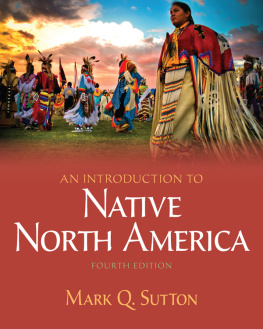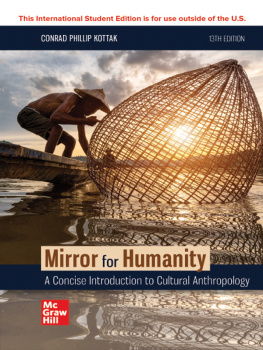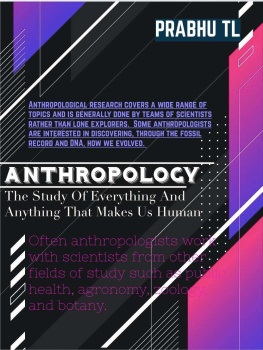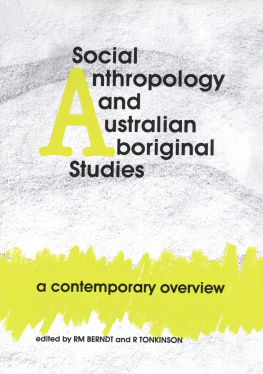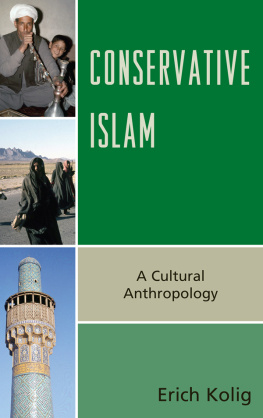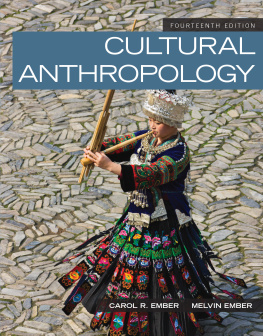A Concise Introduction to Cultural Anthropology
This book offers a concise and accessible overview of cultural anthropology for those coming to the subject for the first time. It introduces key areas of the discipline and touches on its historical developments and applied aspects. As well as traditional topics such as social organization, politics, and economics, the book engages with important contemporary issues including race, gender, sexuality, and colonialism.
In a beginner-friendly format, this book is ideal for students of anthropology, as well as for the interested reader, as an introduction to the subject.
Mark Q. Sutton received his PhD in anthropology from the University of California, Riverside. He taught at California State University, Bakersfield from 1987 to 2007, where he retired as Emeritus Professor of Anthropology. He now teaches at the University of San Diego.
A Concise Introduction to Cultural Anthropology
Mark Q. Sutton
First published 2022
by Routledge
2 Park Square, Milton Park, Abingdon, Oxon OX14 4RN
and by Routledge
605 Third Avenue, New York, NY 10158
Routledge is an imprint of the Taylor & Francis Group, an informa business
2022 Mark Q. Sutton
The right of Mark Q. Sutton to be identified as author of this work has been asserted by him in accordance with sections 77 and 78 of the Copyright, Designs and Patents Act 1988.
All rights reserved. No part of this book may be reprinted or reproduced or utilised in any form or by any electronic, mechanical, or other means, now known or hereafter invented, including photocopying and recording, or in any information storage or retrieval system, without permission in writing from the publishers.
Trademark notice: Product or corporate names may be trademarks or registered trademarks, and are used only for identification and explanation without intent to infringe.
British Library Cataloguing-in-Publication Data
A catalogue record for this book is available from the British Library
Library of Congress Cataloging-in-Publication Data
Names: Sutton, Mark Q., author.
Title: A concise introduction to cultural anthropology / Mark Q. Sutton.
Description: Abingdon, Oxon ; New York, NY : Routledge, 2021. |
Includes bibliographical references and index.
Identifiers: LCCN 2021003972 | ISBN 9780367745479 (hardback) |
ISBN 9780367745486 (paperback) | ISBN 9781003158431 (ebook)
Subjects: LCSH: Ethnology. | EthnologyMethodology.
Classification: LCC GN316 .S976 2021 | DDC 306dc23
LC record available at https://lccn.loc.gov/2021003972
ISBN: 978-0-367-74547-9 (hbk)
ISBN: 978-0-367-74548-6 (pbk)
ISBN: 978-1-003-15843-1 (ebk)
Typeset in Bembo
by Newgen Publishing UK
The purpose of Anthropology is to make the world safe for human differences.
Ruth Benedict
Contents
It is my experience in teaching cultural anthropology over the last 40-odd years that most students will simply not read a standard 500-page introductory textbook. Most such books contain far too much information and are simply too overwhelming (not to mention expensive). Thus, this book is intended to be a very basic just the facts introduction so as to make it palatable to the typical introductory student. This book is purposefully very brief with few citations and only a few specific examples so as to allow the instructor the flexibility to tailor the class and examples in the way they wish. This text has been beta tested on my last few Introduction to Cultural Anthropology classes.
I greatly appreciate the advice, comments, and suggestions of Melinda B. Sutton, Jocelyn Killmer, and the four anonymous reviewers for Routledge. I also appreciate both Katherine Ong and Alexandra McGregor at Routledge for their help and encouragement.
Anthropology is, quite literally, the study of all things related to humans and their societies throughout time and space, including their culture, language, biology, and evolution. This includes topics that are connected but not commonly associated with humans, such as monkeys, fossil animals, and nonhuman actors (e.g., spirits inhabiting nature). Humans everywhere are virtually the same, biologically (in spite of superficial but visible differences), but there are currently some 7,000 separate and distinct societies across the planet. Anthropology seeks to understand what makes these societies different, what they all have in common, and seeks to help contemporary people understand that we should embrace this great cultural diversity!
Visualize all societies on the planet as part of an orchestra. There are many sections of an orchestra: string, woodwind, brass, and percussion, each with a number and variety of instruments. Imagine each society as part of an instrument, a string on a violin or a key on a saxophone, each producing a variety of sounds. Each section, each instrument, each string or drum, each note, each tone, and each octave, all combine to produce a symphony of music. That is human culture. As societies are diminished or lost, the music of the orchestra becomes less complex and loses its beauty. Eventually, the music may fade altogether and we would have a silent world. And that would be a catastrophic loss for everyone.
Anthropology differs from other fields in that it studies all humans, everywhere, from the earliest times (millions of years ago) to today and from the Arctic to the Antarctic. No group is so small that it is not important, and no period of history or prehistory is without interest. This holistic approach has allowed anthropologists to disprove many of the generalizations that were made based only on modern or industrialized (i.e., Western societies including China and Japan), and to demonstrate some other generalizations that were not obvious once, such as the universality of complex kinship systems and dietary rules.
Anthropology is fieldwork-based, obtaining information about societies and people directly from the people themselves. Anthropologists have generally focused on nonindustrialized, traditional, or indigenous societies, many or most of which are small and largely invisible to Western society. More recently, however, anthropologists are working with segments of Western societies or with indigenous communities in developing nations. Anthropology is cross-cultural and comparative and seeks to understand and explain differences. The goal in this is ultimately to explain humans as a whole so as to better understand where we came from, where we are, and where we are going.
But, anthropology can also be viewed as an extension of colonialism, one in which Western interpretations are viewed as superior to those of indigenous groups. In view of this history, anthropologists are now striving to include indigenous views and interpretations into their work.
The discipline of anthropology can be organized in several different ways. In the British system (Europe, Canada, and Australia), cultural anthropology is a separate field entirely, one called social anthropology. Archaeology is also a separate field with a focus on history, art, and architecture.


